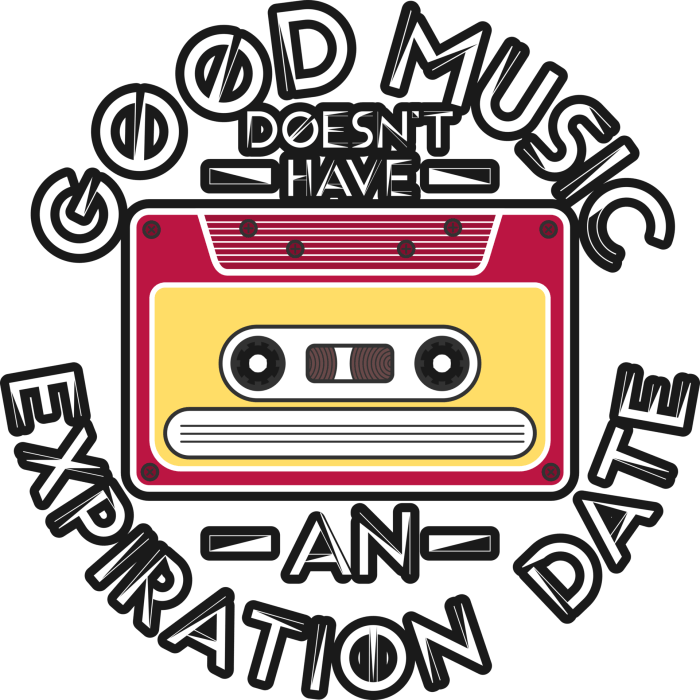No End Date for Music Downloads sets the stage for this enthralling narrative, offering readers a glimpse into a story that is rich in detail and brimming with originality from the outset. The rise of streaming services like Spotify and Apple Music has led many to believe that music downloads are a relic of the past. However, the reality is far more nuanced. While streaming has undoubtedly become the dominant force in music consumption, there are still compelling reasons why music downloads continue to hold their own and may even experience a resurgence in the years to come.
This exploration delves into the history of music downloads, examining the evolution from early file-sharing platforms to the sophisticated download services available today. We will analyze the reasons why some consumers still prefer to own their music, exploring the advantages and disadvantages of both streaming and downloading. The article will also discuss the business models employed by download services, the legal and ethical considerations surrounding music downloads, and the potential for future innovations in this space. Ultimately, we will consider the cultural significance of music downloads and their enduring place in the world of music consumption.
The Appeal of Permanent Ownership
In a world dominated by streaming services, where music is often consumed on-demand and without physical ownership, some consumers still prefer to download music. This preference stems from a desire for permanence, control, and the inherent value associated with owning digital assets. This section explores the reasons behind this preference and examines the advantages and disadvantages of music downloads.
Advantages of Owning Music Files
Owning music files offers several perceived advantages, including offline access, personal customization, and potential resale value.
- Offline Access: Downloaded music can be accessed anytime, anywhere, without an internet connection. This is particularly valuable for travelers, commuters, or individuals in areas with unreliable internet access. For example, imagine listening to your favorite playlist while on a long flight or in a remote location without internet connectivity.
- Personal Customization: Downloaded music files can be organized, edited, and customized in ways that streaming services may not allow. For instance, users can create custom playlists, edit metadata, or even convert files to different formats. This level of control allows for a more personalized listening experience.
- Potential Resale Value: While not as common as physical music formats, downloaded music files may hold some resale value, especially for rare or limited-edition releases. This is particularly relevant for collectors who value the exclusivity of certain digital assets.
The Role of Personal Choice and Preference
In the ever-evolving landscape of music consumption, the decision between streaming and downloading music boils down to individual preferences and needs. Consumers navigate this choice based on a confluence of factors, including their listening habits, storage capacity, and internet connectivity.
Music Listening Habits, No end date for music downloads
Music listening habits play a pivotal role in shaping consumers’ choices. For instance, individuals who prefer listening to curated playlists or discovering new artists might find streaming services more appealing. Streaming platforms offer a vast catalog of music, personalized recommendations, and the ability to switch between songs effortlessly. Conversely, those who prefer listening to specific albums or songs repeatedly might opt for downloading music. Downloading allows for offline listening, eliminating the need for a constant internet connection.
Storage Capacity
Storage capacity is another critical factor. Streaming services require minimal storage space on devices, as music is accessed remotely. This makes them ideal for users with limited storage capacity, especially on mobile devices. Downloading, on the other hand, requires significant storage space, particularly for large music libraries. Individuals with ample storage space might find downloading more appealing, as it provides greater control over their music collection.
Internet Connectivity
Internet connectivity is a crucial aspect of streaming music. Streaming services rely on a stable and reliable internet connection for uninterrupted playback. Consumers with limited or unreliable internet access might find downloading music more suitable, as it allows for offline listening. Additionally, individuals who frequently travel or reside in areas with limited internet coverage might prefer downloading music to ensure uninterrupted access to their favorite tracks.
Hybrid Approach
The rise of hybrid approaches to music consumption is evident. Consumers increasingly utilize both streaming and downloading, depending on their needs and preferences. Streaming services often offer download options for offline listening, combining the convenience of streaming with the flexibility of downloading. This hybrid approach allows users to enjoy the best of both worlds, accessing a vast music library while maintaining offline access to their favorite tracks.
Closure: No End Date For Music Downloads
As technology continues to evolve, the landscape of music consumption will undoubtedly shift further. While streaming services have taken center stage, music downloads remain a viable option for many. Whether you value offline access, the ability to customize your music library, or simply prefer the feeling of owning your music, downloads offer a unique and valuable experience. As we look to the future, it is clear that music downloads are not going away anytime soon. They may adapt and evolve alongside the ever-changing technological landscape, but they will continue to play a significant role in shaping the way we listen to and experience music.
The news of no end date for music downloads is a welcome change for many, offering continued access to vast digital libraries. This development coincides with the exciting announcement of Apple Pay for the web , which will make online transactions even smoother.
While these advancements in digital access are certainly noteworthy, it’s important to remember that the future of music consumption is constantly evolving, and it’s exciting to see where it will lead next.
 Securesion Berita Informatif Terbaru
Securesion Berita Informatif Terbaru
